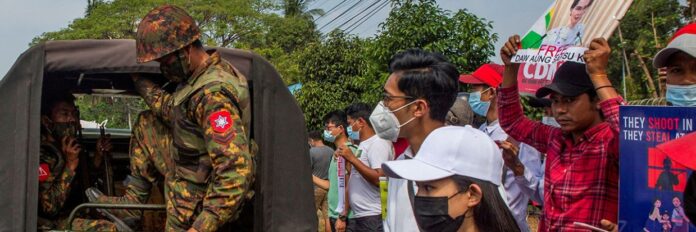Author: Dikran M. ZENGİNKUZUCU
Affiliation: Istanbul Esenyurt University
Organization/Publisher: International Relations Journal
Language: Turkish
Date/Place: April 17, 2021/Turkey
Type of Literature: Research Article
Number of Pages: 23
Link: https://dx.doi.org/10.33458/uidergisi.912068
Keywords: Myanmar, International Community, International Crimes
Brief:
The author evaluates how the international community reacts and takes steps against genocide and crimes against humanity, and the use of international jurisdiction against whoever is responsible for crimes, such as in the case of the Rohingya. Rohingya Muslims have been systematically killed, sexually assaulted, and forced to flee to Bangladesh by the Myanmar army (Tatmadaw) in the August 2017 persecution, which even the UN agencies and international organizations have called “ethnic cleansing”. Thereby, the international community has taken two international initiatives, first is the Republic of Gambia’s application to the International Court of Justice (ICJ) on 11 November 2019 due to Myanmar’s violation of the Genocide Convention. The case concerns Myanmar’s responsibility as a state for the Rohingya genocide. While the case is pending, the ICJ issued “temporary decisions” for Myanmar to take steps to protect Rohingyas. The second initiative is the Prosecutor’s request to open an investigation for those responsible for the events in Myanmar, which was accepted by the pre-trial chamber of the International Criminal Court (ICC) on 14 November 2019. The lawsuit filed at the ICJ was filed by The Gambia with the support of the OIC. Myanmar and The Gambia are parties to the 1948 Genocide Convention, and The Gambia claims that Myanmar committed genocide within the framework of this Convention. The ICJ accepted the case despite Myanmar’s objections. On the other hand, Myanmar is not a party to the Rome Statute, therefore, the ICC cannot file a lawsuit against Myanmar. When Bangladesh ratified the Rome Statute in 2010, the pre-trial chamber of the Court considered it sufficient that some of the crime took place in the territory of a state party (Bangladesh), despite Myanmar’s jurisdictional objections. On the other hand, the UN Security Council can dispatch the case to the ICC, as the Security Council used its authority on Libya and Sudan in the past. The Security Council could not use its authority in the case of Myanmar because of veto power by Russia and China.
By: Esra Ibrahimagaoglu, CIGA Research Associate




